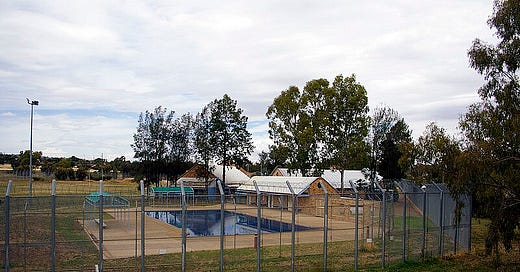‘We need help way earlier’: Report details ‘egregious breaches’ of children’s rights
A major report by the National Children’s Commissioner has shone a spotlight on how the criminal justice system is harming the country’s most vulnerable children.
The National Children’s Commissioner has hit out at “egregious breaches” of the human rights of children in Australia’s criminal justice system, and called for major reforms and a complete rethink in the approach to these policies.
In the ‘Help Way Earlier’ report, National Children’s Commissioner Anne Hollonds investigated how Australia can fix child justice to improve safety and wellbeing and made recommendations for a national approach to reforms of child justice and related systems.
Hollonds spoke with 150 children and young people caught up in the criminal justice system for the report.
“What I saw and heard is evidence of the most egregious breaches of human rights in this country,” Hollonds said in the report.
“This includes the way that vulnerable children are treated in detention. Tragically, by not addressing their human rights early on, and instead taking a punitive approach to their offending, we are essentially criminalising some of the most vulnerable children in Australia.
“It is clear that, to date, we have approached offending by children the wrong way. We cannot police our way out of this problem, and the evidence shows that locking up children does not make the community safer.
“We need to turn our attention and our resources to the underlying causes and to the barriers that stop us taking national action on evidence-based systems reform.”
‘It was to feed your family’
The report includes a number of anonymised case studies on Australian children impacted by the criminal justice system.
These include Elijah, a young First Nations boy who was placed into state care at the age of four. He later started getting into crime to make money and support his family.
“If we stole a car, it was to sell it - it wasn't for nothing, it was to feed your family,” Elijah was quoted in the report.
“The reality is, no one is going to look at a little Black kid twice for a job. My neighbour wakes up and goes to work like his dad did - I wake up and do what my dad did.
“My brother - he was getting regular visits from a service while he was in juvie. But the second he was out, not one visit. From day one he was set up to fail. Two weeks later, he was back in youth detention.”
The report found that the treatment of children in the criminal justice system is “one of the most urgent human rights issues facing Australia today”.
“These are our community’s most vulnerable children, and we have been unable to help them because of upstream systems failure,” the report said.
The need for national reforms
First and foremost, the report calls for a national approach to reform on these issues, centred on the human rights of children.
It calls for the establishment of a National Taskforce for Reform of Child Justice Systems and a 10-year cross-portfolio National Roadmap for reform. The Commissioner also recommended the appointment of a Cabinet Minister for Children and a Ministerial Council for Child Wellbeing.
The age of criminal responsibility should also be raised to 14 across all Australian jurisdictions, the Commissioner. The report comes just weeks after the Victorian government reneged on its promise to raise the age of criminal responsibility to 14.
“One of the clearest opportunities for application of a national child rights approach is in relation to the minimum age of criminal responsibility,” the report said.
“These inconsistent minimum ages and fragmented approach to reform risk exacerbating existing inequalities and creating discriminatory outcomes for children.
“They also do not align with how the stages of child development impact on children’s conceptions of responsibility and accountability.”
The report also urges the implementation of consistent standards and monitoring of youth prisons around the country. Currently there are no legally binding national standards for child justice systems, with the Principles of Youth Justice in Australia 2023 being entirely voluntary.
These principles are “insufficient to ensure the protection of children”, the report found, and the implementation of the UN’s OPCAT “presents an opportunity to coordinate these efforts, and develop nationally consistent standards for child justice facilities”.
“Australia needs to urgently set standards of care for children held in detention and to have comprehensive independent monitoring with transparency and accountability,” it said.



